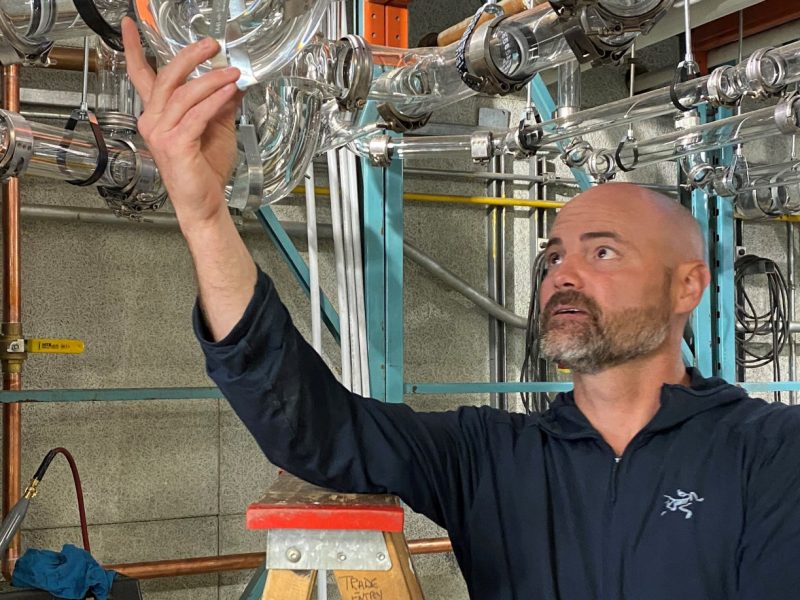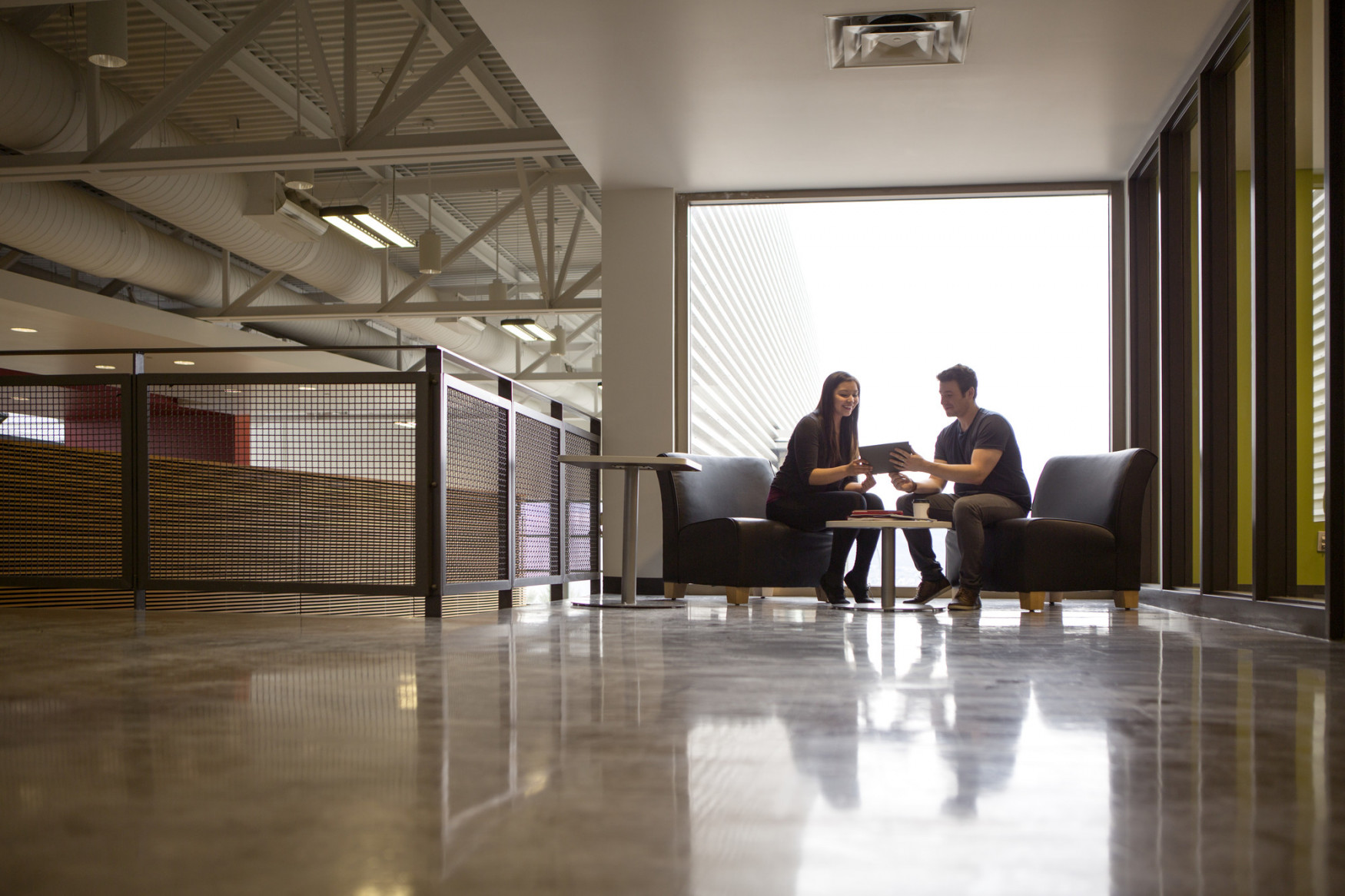
Associate Professor Paul Simpson, from the Piping Trades program, believes in empowering his students while ensuring they’re learning in a safe and supportive environment. He nurtures the belief that everyone can learn and grow. So, when some of his students needed extra support, he was ready to help.
“For five years now, I’ve noticed challenges with many of my students,” says Simpson. “They’ve been coming forward to discuss diagnosed or undiagnosed learning disabilities they have. And because people with disabilities are often heavily stigmatized, they were initially hesitant to reach out. But because I try to offer a safe spot for students in the classroom and with each cohort, they said something, which I’m thankful for.”
Help for struggling readers

Trades students studying.
When Simpson considered how he could best provide support, he included his students’ voices in the conversation.
“I started speaking with them as they were going through the accommodation process, asking what accommodations I needed to better support them. And reading problems came up a whole bunch. Students said they often listen to audiobooks while driving or working, which prompted a few discussions about why audiobooks, for manuals or textbooks, aren’t part of our program.”
Simpson had a thought: what if audiobooks, acting as a reading aid, could benefit students who struggle with reading. He decided to share his idea with BCcampus, a government agency that works with post-secondary institutions to help adapt impactful teaching and learning practices to better support students.
“I emailed them about my idea and said I just didn’t know how to get started or get funding for it,” he says. “I didn’t hear from them for a while, and then when I did, I found out they would fund the pilot project while I provided research around it. So, turning the idea into something that might come to fruition was quite a leap, to be honest, but it happened.”
Challenges met
After hearing that students preferred listening to a human voice, with inflections in the right spot, and not to a computer-generated one, Simpson was ready to do the work, learning as he went along.
“I had no idea how to record. The timing was challenging to figure out. I didn’t know how long it would take to read paragraphs, pages and chapters. But, through trial and error, I finally figured it out. I also needed to create a space to record my voice. I had no idea about acoustics, so I used moving blankets and made a cocoon out of one of the lab stations in the School of Trades. I heard about the TRU Library Makerspace during the recording, which might’ve worked out well, but I kept going with what I was doing. Fast forward to the week of May 29, where level one of the audiobook has been submitted to BCcampus, ready to be produced and released in a way that is easily accessible for teachers and students. We might see the audiobooks as early as this fall.”
When it came to doing research, a first for Simpson, he knew who to ask.
“I went down to the Office of the Vice-President Research and had some great discussions on process, surveys and reports. The research end of it was so interesting. The survey went out and I received a lot of help from the School of Trades — a lot of instructors helped with delivering and collecting the surveys. The report has now been completed and sent off to BCcampus.”
Light on the horizon
Looking ahead, Simpson anticipates positive changes for trades students with learning disabilities.
“I can see some changes already with the agencies we work with, including the Industry Training Authority that manages trades programs in BC,” he says. “They have individuals on board that can do consultations and allow for accommodations on their national exams. I discovered that as I was asking a lot of questions about support for students. Barriers don’t need to be there, so we’re making progress, both at the post-secondary level and within agencies. Having a system that can identify and give credibility to these individuals in a safe and fair manner is the goal.”
 ICBC warns teens for prom
ICBC warns teens for prom 44-year-old woman missing
44-year-old woman missing Stanley Cup Playoff etiquette
Stanley Cup Playoff etiquette Senators reject field trip
Senators reject field trip 'City within a city'
'City within a city' Searching landfill for woman
Searching landfill for woman Israeli strike played down
Israeli strike played down Full Trump jury seated
Full Trump jury seated World's largest election
World's largest election  Lululemon cuts 100 jobs
Lululemon cuts 100 jobs Bitcoin's 'halving' arrives
Bitcoin's 'halving' arrives Lawsuit over missing nuts
Lawsuit over missing nuts Rockets season ends in PG
Rockets season ends in PG Warriors bounced in opener
Warriors bounced in opener Warriors ready for Round 2
Warriors ready for Round 2 Pulp Fiction turns 30
Pulp Fiction turns 30 Chris Pratt injured in movie
Chris Pratt injured in movie My name is not Elaine
My name is not Elaine



